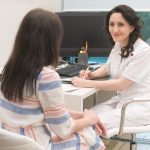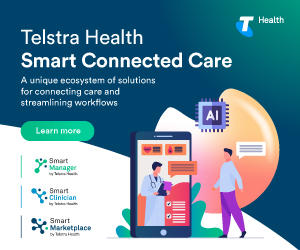Report reveals patients want more health information from GPs
Recent research has found patients are getting more information from Dr Google than their doctors, but doctors need to consider becoming more proactive in giving patients what they really need to manage their health, Dr Charlotte Middleton, GP and Chief Medical Advisor at MedicalDirector, says.
Patients are searching online for answers they seek from GPs
MedicalDirector’s recent Patient Engagement Survey 2018, has revealed patients expect a lot more information about their health than they are currently receiving from their GPs, and are resorting to searching online to find out more about their condition, both before and after their consultation.
The research shows most patients (78%) conducted online research to find out more about their condition or prescribed treatment, both before and after visiting their GP. But a majority 80% say they would have actually preferred that information come directly from the GP or Practice website, assuming it is of high quality.
“As the white paper alludes to, patients want doctors to be educating them more, that’s the bottom line,” Dr Charlotte Middleton, says. “And the survey reveals patients prefer doctors to be the source of that information, rather than Dr Google. But the reality is, they are searching for that information online. As Doctors, we really don’t want our patients to be going to the Internet for answers, as a typical patient lacks the ability to interpret and contextualise the information. So the onus is on us, as doctors, to provide relevant and accurate information to patients.”
Patients have a clear appetite for health education
And despite having an appetite to know more about their health, most patients are also walking away from their consultations empty-handed. Other than face-to-face consultations, 88% of respondents said they didn’t receive any other additional health education from the GP since their last consultation. Alarmingly, only a meagre 16% of patients who rate their health as poor or very poor say that they received additional health information or resources from the GP.
Meanwhile, 90% of patients say they would have liked a printed fact sheet explaining their condition in more detail and how to manage it. Another 42% say they would like a follow-up email from the GPs. These results demonstrate that there is a significant gap between the education patients expect from their GP, and what GPs are currently providing.
“I’m seeing most patients expect more information from me, from younger patients like university students who are expecting me to direct them to more resources (that they can access on their phones), to my mostly middle-aged/older female patients, who are really grateful if I give them more written information or suggest that they read a book,” Dr Middleton says.
Offering health education doesn’t have to be hard
For a busy practitioner, the idea of offering resources during a consult might seem difficult, or time consuming, but according to Dr Middleton, it doesn’t have to be, once simple habits are put into place.
“For instance, I just bookmark my go-to factsheets from say, the RACGP on my desktop, or access HealthShare factsheets directly in my clinical software , which means providing written information for my patients only takes a few seconds,” she explains. “But it’s a matter of educating more doctors that patients want and need this information, and it’s not that hard for their doctor to provide it quickly during the consult.”
“Doctors need to be a trusted source of information, but while it may be impractical for a time-poorpractice to have lots of web content and factsheets on their website, the GP has the responsibility to know where they can refer their patients to in order to access that information, or where the GP can go to during the consultation, to then provide the factsheet or information.” she adds. “The website can redirect patients to good quality, evidence-based resources and information that the doctor trusts.”
Moving forward, Dr Middleton stresses that the future of health is about an information ecosystem where patients are educated and empowered about their health.
“It’s about giving patients information about their condition and how to manage it, in a way they can retain in addition to the appointment,” she says. “And as doctors, we also know that when we provide that extra information to patients in whatever form that is, patients are just so much more satisfied, far more compliant and more likely to go back to the same GP to ensure continuity of care.”
Dr Charlotte Middleton
BMBS, Dip CH., FRACGP
GP and Chief Clinical Advisor, MedicalDirector
An esteemed medical practitioner and prolific speaker, Dr Charlotte has been in clinical practice for over 20 years, and currently splits her time between General Practice and her role as MedicalDirector’s Chief Clinical Advisor.
A dedicated thought leader driving awareness around how technology impacts healthcare, Dr Charlotte frequently appears on TV segments, educational videos and guest panels. Prior to joining MedicalDirector, Dr Charlotte was the MedicalDirector at digital health company, Healthshare between 2015-2017.
Dr Charlotte Middleton will be discussing the topic of patient engagement further in her presentation at the 2018 GPCE in Brisbane and Melbourne.









